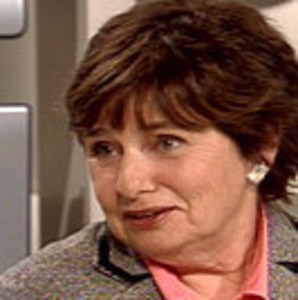There are the countless stories of conversions from one religion to another, from atheism to belief and from belief to atheism.
All of these leaps of faith are interesting, because the same uniquely human faculty – the ability to critically examine the received wisdom of one’s youth, and to reject it in favour of other more compelling resolutions to one’s spiritual discomfort – can lead to so many disparate and often contradictory solutions.
Whatever the intellectual process that leads to such a dramatic change on a life, the final step is always a leap of faith. On October 1, La Presse published two extracts from a newly published book recounting a double conversion – first political, then religious – requiring a leap of faith over such an unusually wide chasm that it deserves our attention. The author of Juif, une histoire québécoise, is Richard Marceau, a former MP for the Bloc Québécois from 1997-2006.
Early in his tenure, Marceau took a trip to Israel. Up until then, he had not seriously questioned the reason why most Quebecers, and in particular those dedicated to the sovereigntist option, reflexively sympathised with the Palestinians against Israel. What he saw in Israel awakened first his curiosity and then his admiration (my translation): “I liked what I was seeing, what I was reading, what I …was discovering about Israel.”
What he saw was a state that in economic and cultural ways resembled Quebec: “A social democratic state which focuses on high technology and the technology of knowledge. These are people, so few of them, fighting for their language and culture through adversities to build a country of their own.” Israel was also a country that unlike its neighbours embraced the socially progressive values so cherished at home: “Israel is a model of equal rights for homosexuals and women.”
Marceau’s first visit convinced him that Israel should be an economic role model and Quebec’s first choice for economic partnership. He returned home with a sense of mission – to promote understanding of “this small, misunderstood country I loved” in Canada.
Marceau is well aware of the charged nature of the word “Zionist,” and knows that it is more often used as an insult than a compliment, but uses it to describe his burgeoning affinity for Israel. Marceau was not yet a Zionist activist; his use of the term is more at this stage an expression of solidarity with Israel’s right to exist as a nation.
He explains that to him Zionism is “a very simple concept, one that wants the Jewish people to have the right to self-determination and its own country. As simple as that.”
Needless to say, Marceau’s intellectual conversion ruffled feathers amongst his colleagues in the Bloc Quebecois, which, as a federalist party, had to deal with Mideast tensions, and whose publicly stated views were supposed to be a harbinger of Quebec’s foreign-affairs posture as a sovereign nation. The majority of the BQ caucus were pro-Palestinian and life became difficult for him.
Undeterred, Marceau continued to press his minority view, bringing forward facts and realities ignored in the equally pro-Palestinian mainstream media. He tells us that the primary canard he struggled to expose was “the false and widely spread myth that Jews had stolen a land which belongs to Palestinians.”
Marceau’s second trip to Israel took place during the 2000 intifada, when rockets were falling on Israeli towns, and tourism had fallen off steeply. Marceau was moved by the gratitude shown to him for his courage in coming at such a bad time. (Restaurant owners and merchants offered him and his entourage rebates and even invited them to their homes.) His admiration and sympathy for Israelis’ life-affirming impulses to “Grow. Build. On this land which is theirs” expanded his political commitment: “I became, through admiration and sympathy for the Israelis, an active Zionist.”
Remarkable as this story is to this point – surely unique in Quebec history – it represented only the beginning of Marceau’s reinvention of self. On his third trip to Israel in 2003, without his understanding why, after a special Shabbat experience in Jerusalem, “an old-stock Quebecer, born and raised in a very Catholic family, who later became agnostic, if not cynical, went back to God, not as a Christian, but as a Jew.” He assigns his profound inner revolution to a need for meaning that could not be met by anything short of a reconciliation with God.
Why Judaism? Because of the “insistence Judaism puts on this sacred text [the Torah],” and because “I was attracted by the concrete side of Judaism,” and because “Judaism focuses on life, here, now,” rather than the promise of a better life after death. Which really doesn’t explain such a dramatic personal revolution at all to the curious observer.
This book is sure to spark interest and discussion amongst Quebec’s cultural and political elites. Richard Marceau is a Quebec original, and a reminder that whenever we think we have figured out what makes people tick, we find we really don’t know anything at all about the mystery of the human mind, heart and soul – and our capacity for transcendence in the search for meaning to our lives.


























Laissez un commentaire Votre adresse courriel ne sera pas publiée.
Veuillez vous connecter afin de laisser un commentaire.
Aucun commentaire trouvé